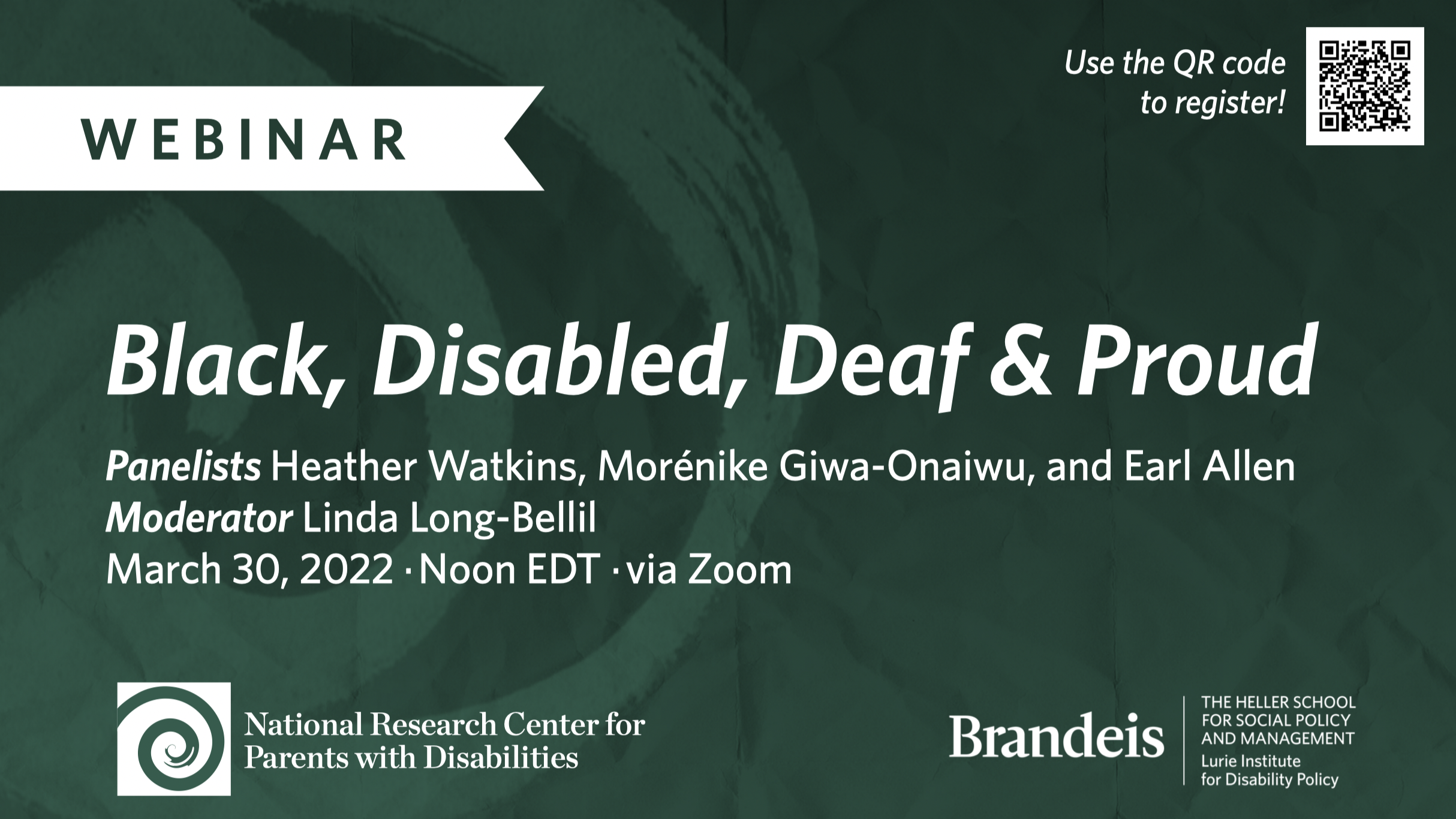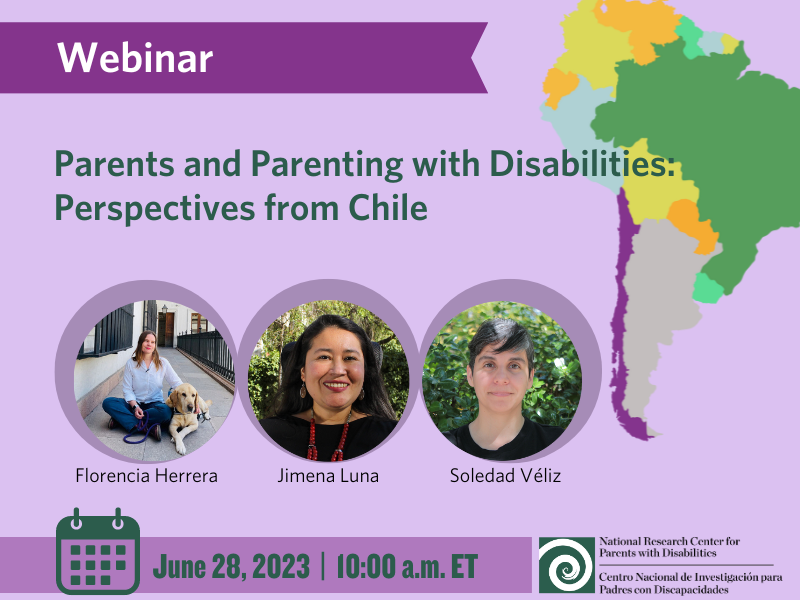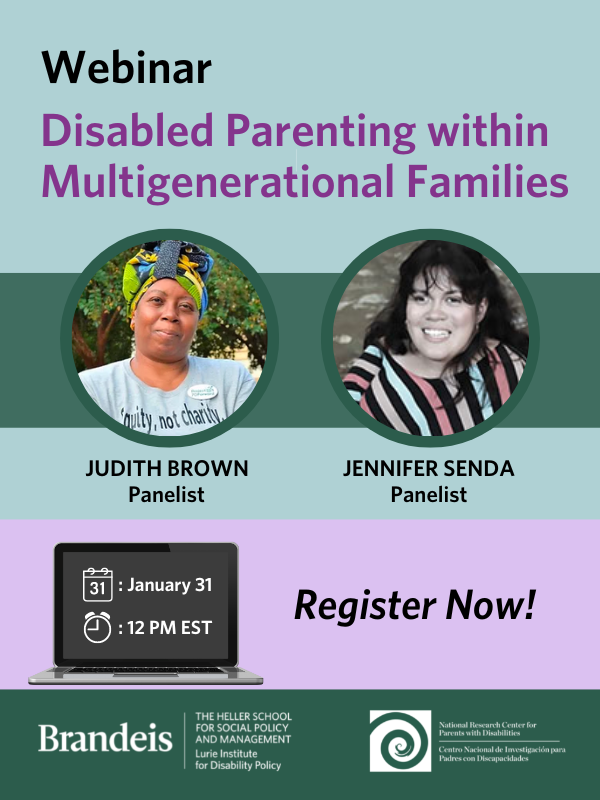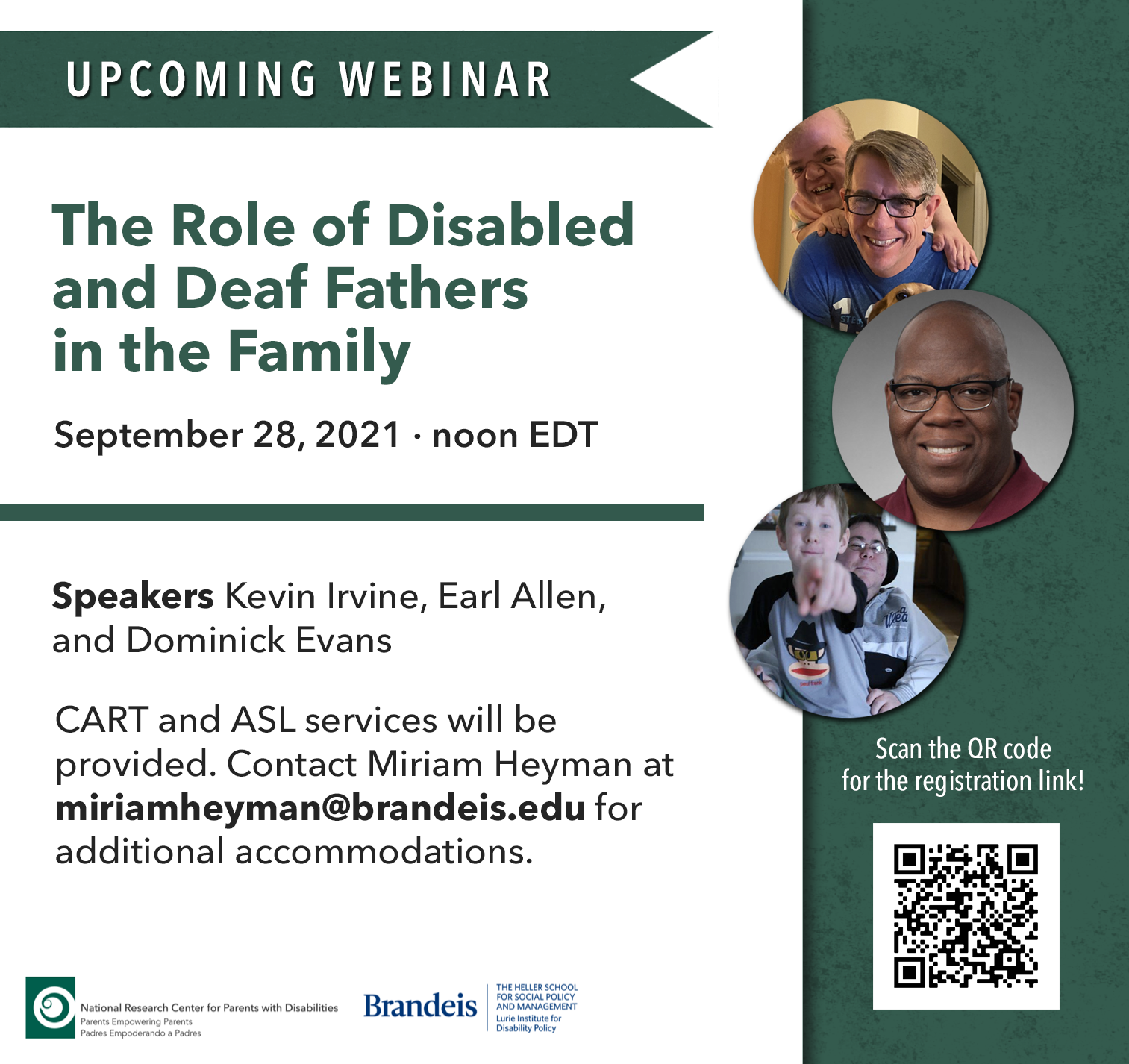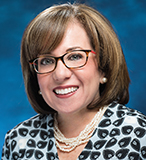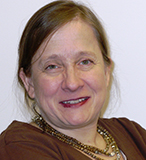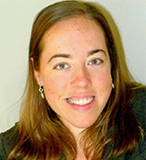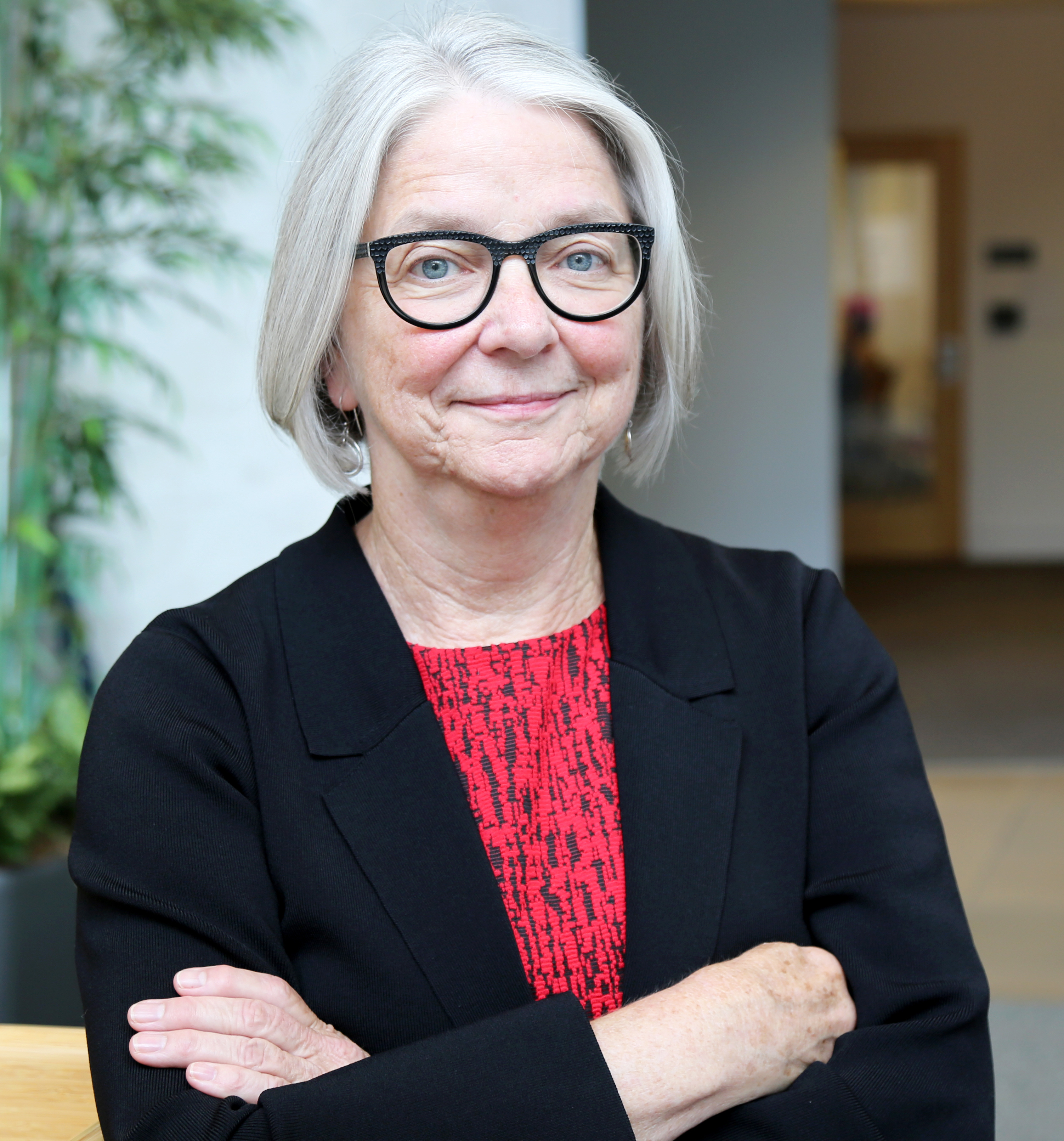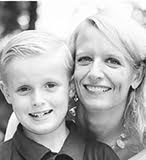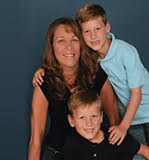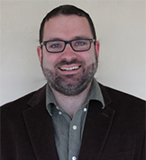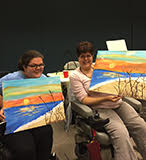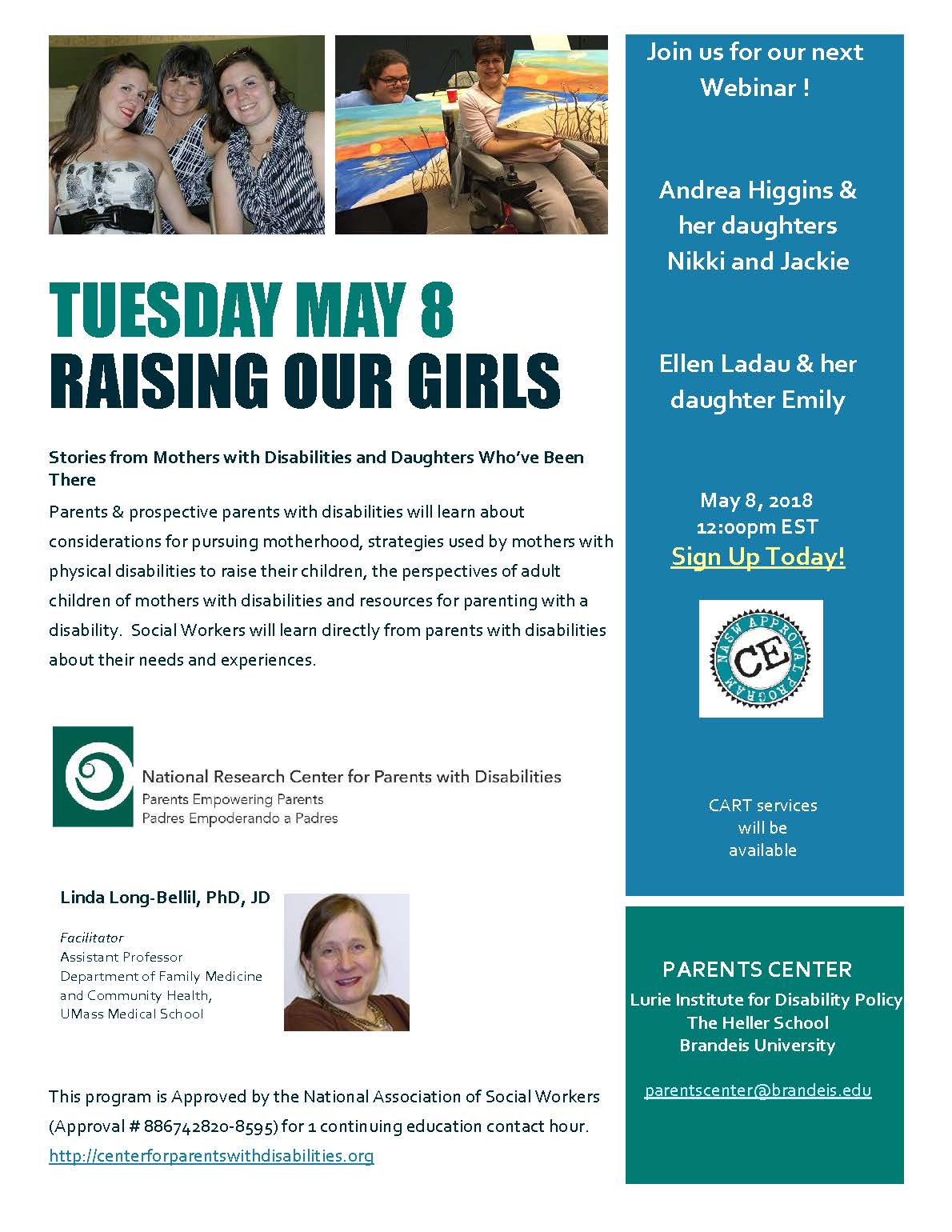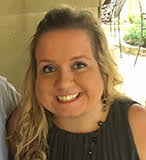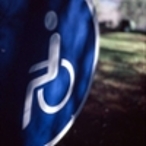Explore upcoming webinars here
Disabled Parents' Adoption Experiences
Date: November 10, 2025
People with disabilities can face barriers and stigma when adopting kids. In this webinar, facilitated by researcher and adoptive parent Kara Ayers, we heard from two disabled parents, Robin Wilson-Beattie and Yomi Young, about their experiences with adoption. They shared what they wish they knew before navigating adoption, what support helped them, and what professionals should know about adoptive disabled parents and families.
Access the webinar recording, Disabled Parents' Adoption Experiences
Read our one-page summary about this webinar
Supporting Parents with Disabilities: An Overview for Social Service Providers
Created by NRCPD investigator Dr. Elizabeth Lightfoot of the School of Social Work at Arizona State University (ASU), this video training provides social workers and other social service providers with an introduction to effectively supporting parents with disabilities. It offers practical and evidence-based information for those working in child protection, family support, disability services, schools, health, and behavioral health care settings, and related fields who want to improve outcomes for families with a disabled parent.
The video describes the historical and policy context of social work services with parents with disabilities, core concepts and frameworks social service providers should be aware of when working with parents with disabilities, evidence-based and promising practices that support parents with disabilities, and best practice recommendations.
Please find a companion guidebook to the video in both English and Spanish here: https://sites.google.com/asu.edu/lizlightfoot/home/parents-with-disabilities.

Disaster Preparedness for Parents with Disabilities
Date: July 21, 2025
Panelists: Melissa Marshall, Shari Myers, & Judy Brown
People with disabilities are often excluded from conversations about emergency preparedness. This includes parents with disabilities who need to keep themselves and their children safe during a disaster. In this webinar, we learn from Shari Myers and Melissa Marshall from the Partnership for Inclusive Disaster Strategies about preparedness best practices and from National Research Center for Parents with Disabilities' Advisory Board member Judy Brown about her personal experiences.
Access the Webinar Recording: Disaster Preparedness for Parents with Disabilities
Access the webinar slides for Disaster Preparedness for Parents with Disabilities
You may also wish to consult our parent support resource page on disaster preparedness:
Access the Disaster Preparedness for Parents with Disabilities resource page

Using the Disability Data Dashboards to Advance Policy and Advocacy
Date: July 10, 2025
The Lurie Institute’s Disability Data Dashboards offer crucial information in easy-to-understand and accessible ways. The dashboards can serve as helpful, efficient, and time-saving tools for disability policy advocates across the United States. In this webinar, we discussed our two dashboards, the Parents with Disabilities Dashboard and the Community Living Dashboard, live demo-ing how they work, what information they show, and what the metrics mean.
Access the Recording: Using the Disability Data Dashboards to Advance Policy & Advocacy
Access the Slides from the Disability Data Dashboard Webinar

Keeping Families Together Training: Using Disability Law To Defend Disabled Parents
Dates: May, 7 and 14, 2025
Presenters: Kavya Parthiban, Robyn Powell, Ayesha Elaine Lewis, and Linda Long-Bellil (Facilitator)
- Download Training #1 (May 7) PowerPoint Slides
- Watch training #1 on YouTube
- Download Training #2 (May 14) PowerPoint Slides
- Watch training #2 on YouTube

Strategies for Supporting Parents with Disabilities when there is Child Protection Involvement
Date: Thursday, January 30, 2025
Panelists: Drs. Liz Lightfoot & Kara Ayers
An overview of ableism and discrimination within child protection and strategies for addressing these injustices. Presenters are Dr. Elizabeth Lightfoot, Distinguished Professor of Social Policy and Director of the Arizona State University School of Social Work, and Dr. Kara Ayers, Associate Professor at Cincinnati Children's Hospital.

Living with Anxiety as a Disabled Parent
Date: Wednesday, October 23, 2024
Panelists: Judith Brown & Jenny Senda
This webinar recording discusses the anxiety of new parenthood from the viewpoint of two disabled mothers. Both generalized anxiety disorder among disabled parents as well as the day-to-day anxieties of parenting with a disability when parents often experience stigma and ableism at both a structural and personal level are discussed.

"I challenge them a bit": Encounters between Parents with Disabilities and the Medical Institution
Date: March 6, 2024
Panelists: Florencia Herrera and Andrea Rojas
In this lecture, Florencia Herrera and Andrea Rojas explored how barriers, particularly those of an attitudinal nature, are reflected in concrete encounters between parents with disabilities and medical personnel and hamper care for their children or during pregnancy.
People with disabilities face particular additional barriers of access to health care. Drs. Herrera and Rojas explored how these barriers increase when parents with disabilities require medical attention for their children. Using the small story research technique, they analyzed 38 interviews with disabled parents conducted as part of a qualitative-narrative study in Chile. They identified stories in which the participants describe encounters with the medical institution in which they are invisibilized and disempowered. A medical model of disability, which actively ignores how to interact with people with disabilities, prevails among health personnel. Parents with disabilities irritate the medical institution because they do not have ‘standard’ bodies and are in the position of the carers of others (their children), rather than that of people who require care. These parents develop strategies to resist the way they are treated, making extra efforts to obtain medical attention for their children.

The Role of the HHS Office for Civil Rights in Advancing Rights for Disabled Parents: Safeguards in Child Welfare Cases
Date: January 30, 2024
Panelists: Carla Carter of the HHS Office for Civil Rights and Robyn Powell of the NRCPD
The National Research Center for Parents with Disabilities hosted a webinar on how the Office for Civil Rights in the U.S. Department of Health and Human Services (HHS) can apply safeguards in child welfare cases and protect the rights of disabled parents.
Access the recording of The Role of the OCR in Advancing Disabled Parents' Rights

Strategies to Support Parents with Psychiatric Disabilities with Child Welfare Involvement: Perspectives from Staff Providing Legal Services
Date: October 19, 2023
Panelists: Robyn Powell, Ron Ayler, and Alex Dutton
Moderator: Miriam Heyman
This webinar explored the experiences of parents with psychiatric disabilities with child welfare involvement, including barriers and facilitators to positive outcomes. Researchers from the Lurie Institute for Disability Policy provided background information about the disproportionate representation of parents with psychiatric disabilities within the child welfare system, and issues that these parents frequently confront. Through a conversation with staff providing legal services to parents, we identified how legal staff and other service providers can meaningfully support parents.

Multiplying the Challenge: Parenting as a Disabled Immigrant
Date: August 22, 2023
Panelists: Jennifer Senda & Angelica Garcia
Facilitator: Luanjiao Aggie Hu
Parents with disabilities are a diverse group. In this webinar, our panelists are disabled immigrants and will talk about how citizenship and immigration statuses affect their lives when they take on parental roles, a topic that is less discussed and heard in public spaces.

Reproductive Health and Perinatal Care Needs of People with Intellectual Disabilities
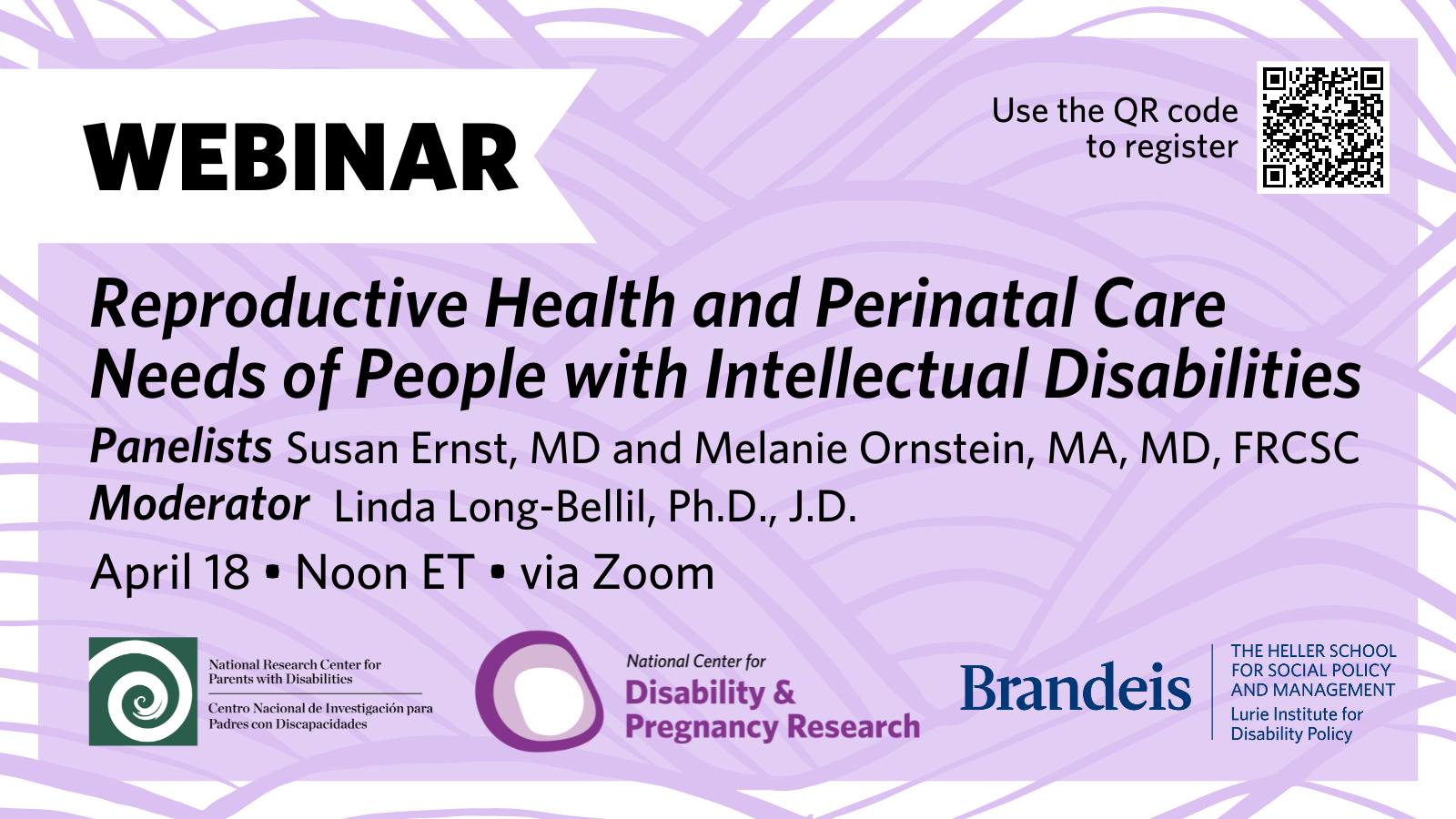 Many clinicians have little experience caring for people with intellectual disabilities (ID), particularly in addressing their needs regarding reproductive health and pregnancy. In this webinar, Drs. Susan Ernst and Melanie Ornstein described the reproductive health and perinatal care needs of people with ID. They discussed how to approach issues such as communication, preconception counseling, and specific considerations for pregnancy, labor and delivery and postpartum care.
Many clinicians have little experience caring for people with intellectual disabilities (ID), particularly in addressing their needs regarding reproductive health and pregnancy. In this webinar, Drs. Susan Ernst and Melanie Ornstein described the reproductive health and perinatal care needs of people with ID. They discussed how to approach issues such as communication, preconception counseling, and specific considerations for pregnancy, labor and delivery and postpartum care.
Disabled Parenting within Multigenerational Families
January 31, 2023
Multigenerational households are defined as three generations or more, living together. Common throughout time, and across different cultures, the number of multigenerational family households in the US has been on the rise since the COVID-19 pandemic. Due to service gaps in home and community-based services and other factors, many adults with disabilities, including those who are parents, may continue to live with their families of origin.
This webinar explored the experiences of disabled parents living within multigenerational households. Our two parent panelists, Judith Brown and Jennifer Senda, shared the successes and challenges they have experienced while living in multigenerational households with their children. The policy implications of this type of living arrangement were also discussed.
Access the webinar recording for Disabled Parenting within Multigenerational Families
Disabled Parents in the NICU
June 7, 2022
What can happen when a parent with a disability faces a lengthy stay in the neonatal intensive care unit (NICU) with their baby? This webinar featured two disabled parent panelists (Kristie Lewis and Patrick Cokley) whose babies were born prematurely and were admitted to the NICU. The panelists shared their stories about the challenges and successes they encountered during that time when navigating an environment that is not at all built with disability in mind. Our parent panelists also explored the role that implicit bias and ableism may have had in interactions with their babies' care team, and in parenting their babies in the NICU. Our faculty speaker, Dr. Paige Church of Sunnybrook Hospital in Toronto, Ontario, spoke about the ingrained nature of implicit bias within the NICU, how this can adversely affect families, and how we can better care for families headed by disabled parents during this most vulnerable time.
Black, Disabled, Deaf, & Proud
Date: March 30, 2022
Featuring: Heather Watkins, Morénike Giwa-Onaiwu, and Earl Allen
Facilitator: Linda Long-Bellil

